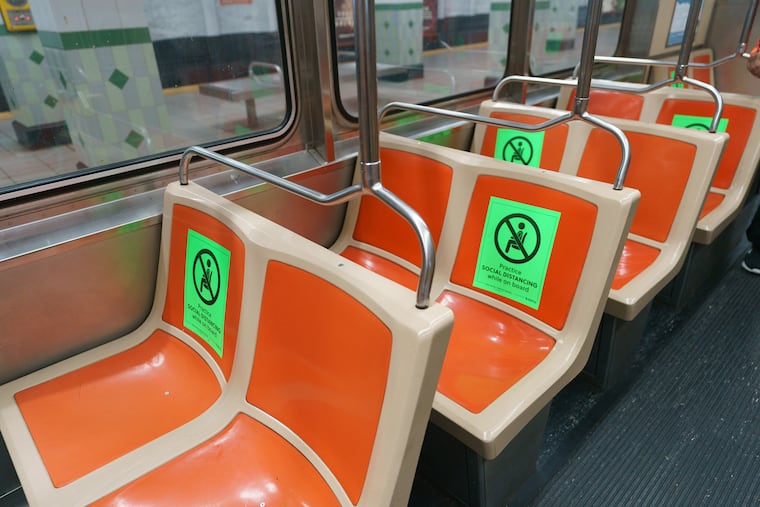SEPTA’s mass transit doomsday scenario will undermine Philly region’s economic future | Editorial
SEPTA is facing double budget jeopardy as the pandemic decimates ridership and causes delays in capital budget revenue. It's a new twist, but an old story that deserves a permanent solution.

SEPTA General Manager Leslie Richards warned Pennsylvania legislators last week that draconian cuts in Regional Rail, subway, trolley, and bus service are inevitable without Harrisburg’s help in devising permanent solutions to the authority’s money woes. Her testimony during a virtual House Transportation Committee meeting was not an occasion for the first such dire prediction; the authority’s ”doomsday” response to a 2013 funding crunch included a strikingly similar route map of an eviscerated SEPTA with fewer lines, routes, and stations. And ever since SEPTA was established by the state in the 1960s, it has been underfunded in comparison with similar systems in Boston and Chicago — and has regularly found itself trudging hat-in-hand to Harrisburg.
The catastrophic drop in ridership and the squeeze in capital funding provided by Pennsylvania Turnpike tolls, both caused by the pandemic, are largely responsible for SEPTA’s immediate operating and capital budget crises. According to Richards, average daily losses total $1 million. But the deeper issue is the chronic shortfall in political will largely caused by the historical disdain for Philadelphia in Harrisburg.
This antipathy is neither universal among nor limited to Republicans. But for too long, elected officials from suburban and rural parts of Pennsylvania have failed to grasp the statewide economic importance not only of maintaining, but enhancing, reliable regional mass transportation systems — in Philadelphia as well as in Pittsburgh and smaller cities. The role of efficient transit in the state’s economic competitiveness can only grow as the impact of climate change deepens in the coming decades.
The 2013 funding crisis did lead to an innovative, but short-term, arrangement to support capital spending by SEPTA and other transit systems with turnpike toll revenue. Beyond the unpredictability of the already scheduled capital fund payments caused by the pandemic, there’s the looming ”sunset” of the arrangement itself on July 1, 2022. The shift makes it even more difficult to budget for much-needed capital projects in the coming decade. Among those envisioned is the replacement of two-thirds of the cars on the Regional Rail fleet, which is expected to cost $1.1 billion.
There are some encouraging developments. Legislation proposed by State Rep. Tim Hennessey, a Montgomery County Republican who chairs the House Transportation Committee, would enable counties statewide to levy and collect a transit funding tax to support local transit agencies. His proposal is similar to a recommendation made in 2019 by the Southeastern Partnership for Mobility, a public-private partnership that assessed the Philadelphia region’s transit and transit funding needs. And a report by a House transportation infrastructure task force headed by State Rep. Martina White, a Philadelphia Republican, last year called for streamlining state funding and ending the diversion of money for transit infrastructure projects.
These proposals and recommendations could prove to be sound mechanisms to sustain SEPTA. But structural change in the apportionment of seats on SEPTA’s board also would help; collectively, the interests of the four suburban counties outweigh the interests of Philadelphia — home to the majority of the system’s riders.
Richards’ presentation to the legislators may have been melodramatic. But it was necessary. And while similar warnings may have been heard before in Harrisburg, this one ought to be heeded.